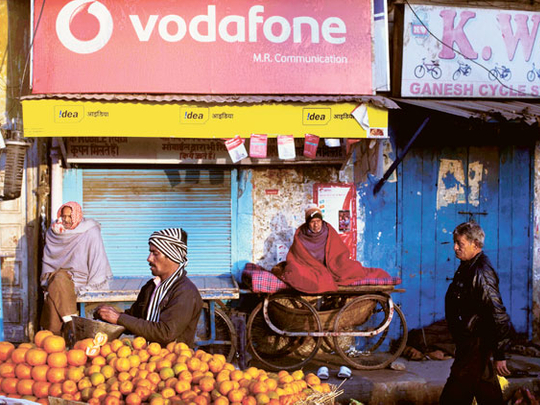
Mumbai: India's budget deficit reached 92.3 per cent of the fiscal-year target in the nine months through December, imperilling the government's aim of reining in the gap.
The deficit was Rs3.8 trillion (Dh282 billion) in the period, the Controller General of Accounts said on its website yesterday. The shortfall was 44.9 per cent of the annual objective in the same period a year earlier.
Finance Minister Pranab Mukherjee has said cutting the deficit is a "serious challenge" and Standard Chartered Plc has predicted India will miss its target of lowering the gap to 4.6 per cent of gross domestic product by March. Slowing growth threatens to hurt tax receipts even as subsidies spur spending and the government struggles to sell stakes in companies it owns.
"The fiscal slippage this year will be substantial," Shubhada Rao, Mumbai-based chief economist at Yes Bank Ltd, said before the release. "As the economy slows, revenue collections are also getting hit."
The yield on the 8.79 per cent bonds due in Nov-ember 2021 fell two basis points, or 0.02 percentage point, to 8.26 per cent in Mumbai yesterday. The rupee strengthened 0.6 per cent to 49.3675 per dollar, while the BSE India Sensitive Index of stocks, which lost about a quarter of its value in 2011, climbed 1.2 per cent.
Bonds rose after Subir Gokarn, deputy governor of the Reserve Bank of India, said in New Delhi that the central bank may consider more government debt purchases if a cash squeeze fails to ease.
Reserve ratio
The Reserve Bank on January 24 lowered the amount of deposits lenders need to set aside as reserves for the first time since 2009 and signalled future interest-rate cuts, moving to shield growth from the impact of Eur-ope's debt crisis. The reserve-ratio reduction was effective January 28.
Overnight interest rates remain elevated even after the reduction in the cash reserve ratio, indicating liquidity pressures are persisting, Gokarn said.
"Based on that, obviously, we will consider" open-market operations, he said, referring to bond purchases. The possibility of another reserve-ratio cut at the mid-quarter monetary policy review also remains on the table, he said. The Reserve Bank also said last week that inflationary threats make it "premature" to start lowering its repurchase rate, adding that without "credible fiscal consolidation" its scope to cut rates will be constrained.
It left the benchmark at 8.5 per cent for a second month at the January review. Indian inflation was 7.47 per cent in December, a two-year low, while remaining the fastest among the Bric (Brazil, Russia, India and China) nations.












